5 of the Best Hardware Vocoders: Sing the Body Electric With These Fun Voice Synths
Hardware vocoders from Behringer, Moog, Arturia, and more.
Want to transform your voice into a robot or heavenly synth choir? Look no further than these five best hardware vocoders.
Best Hardware Vocoders
The vocoder may not be the most versatile instrument on the planet. But what it does, it does very well: it lets you sing through a synthesizer. Whether that be robot-style like electro classics of the 1980s, heavenly choirs like ELO or Air, or something a little more experimental, if your song is calling for a vocoder then nothing else will substitute.
Although the heyday of the vocoder in terms of popularity may be gone (the Autotune era shows no sign of ending), there are still plenty of applications for a good synth song. And it doesn’t have to be just your voice either. You can run all kinds of things through a vocoder, including drums and special effects.
If you’ve been thinking about picking up a hardware vocoder, you’ve come to the right place. If you prefer a software one, we’ve got you covered here. And if you need to brush up on how a vocoder works, check this out.
Now, may I present to you, five of the best hardware vocoders on the market today.
Best Hardware Vocoders: Behringer Vocoder VC340
One of the most famous and sought-after vocoders of all time is the Roland VP-330. Released in 1979, it combines a vocoder with a string synthesizer, adding keys to make it easy to play. Original VP-330s go for thousands these days; unless you’re a collector, the far more affordable option is Behringer’s take on it, the Vocoder VC340.
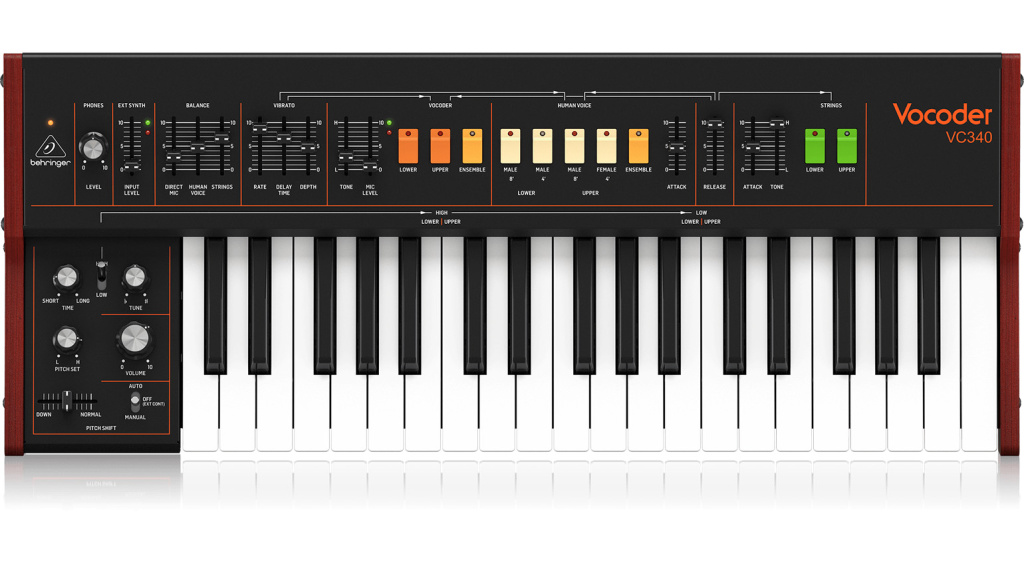
The Behringer VC340 has similar sounds to the original, with the famous Strings, Human Voice (both male and female) and the Vocoder. As with the original, it’s paraphonic and limits controls to the basics, like octaves and LFO, but that’s what you get with a string machine. What you’re really after is the sound, and the VC340 nails it, all the way down to the ensemble effect.
As a vocoder, the VC340 is tops. Although you have to supply your own microphone, there is an external input, allowing you to use any synth (or any other audio signal really), as the carrier, extending the range of possible sounds.

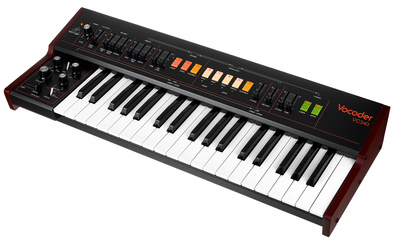
- Behringer Vocoder VC340 product page
Best Hardware Vocoders: Moog Spectravox
The first vocoder that Bob Moog made was done for Wendy Carlos as a way to synthesize the voices in Beethoven’s 9th Symphony for her soundtrack for A Clockwork Orange. The spirit of that first prototype lives on in the Spectravox, Moog’s combination vocoder and spectral processor.
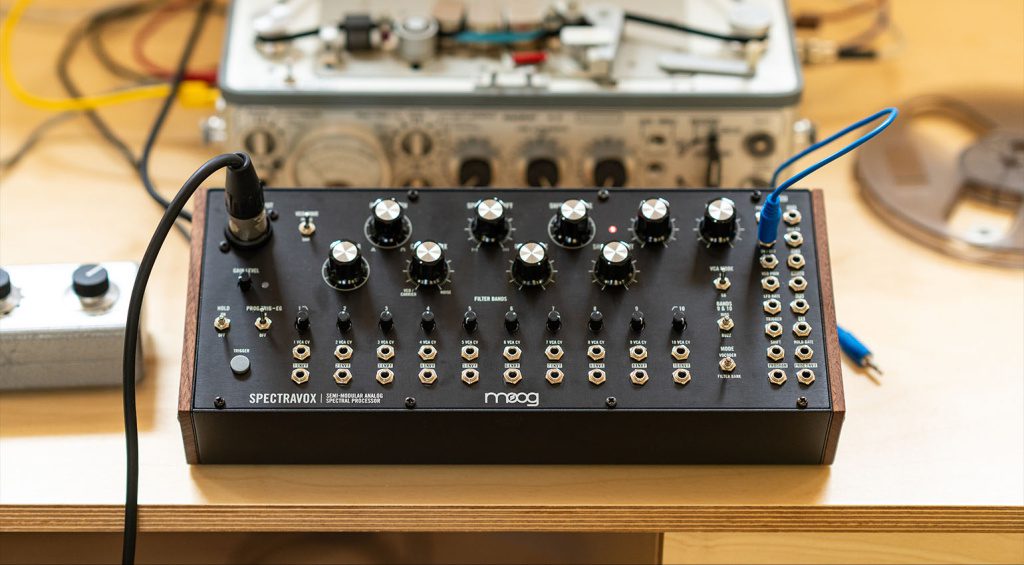
As a vocoder, you can use Spectravox either with its on-board carrier, a single VCO with saw and pulse waves, or by patching in your own. It also has white noise, plus Hiss and Buzz parameters for emphasizing vowel sounds. Uniquely, it has 10 filter bands, a high- and lowpass filter plus eight bandpass ones, each independently modulatable. You can also press Spectravox into processor duties, using it to affect incoming signals like a wild filter bank.
If a highly intelligible vocoder is what you’re after, Moog Spectravox may disappoint. This is more experimental (it can also be used with Eurorack, after all) and in keeping with the spirit of Moog’s original collaboration with Wendy Carlos. For unusual vocal sounds though, it’s one of the best hardware vocoders.

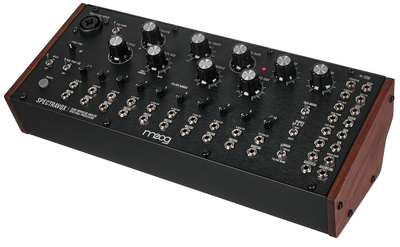
- Moog Spectravox product page
Best Hardware Vocoders: Arturia MicroFreak
Arturia’s MicroFreak is a pretty amazing little synth. Proudly digital, it features 17 oscillator types that run the gamut from virtual analog to wavetable and all points in between. It also has a – you guessed it – vocoder engine inside. With 16 bands, it’s got a fairly full sound, and the fact that it’s digital makes it easier to dial in intelligibility than traditional analog ones.
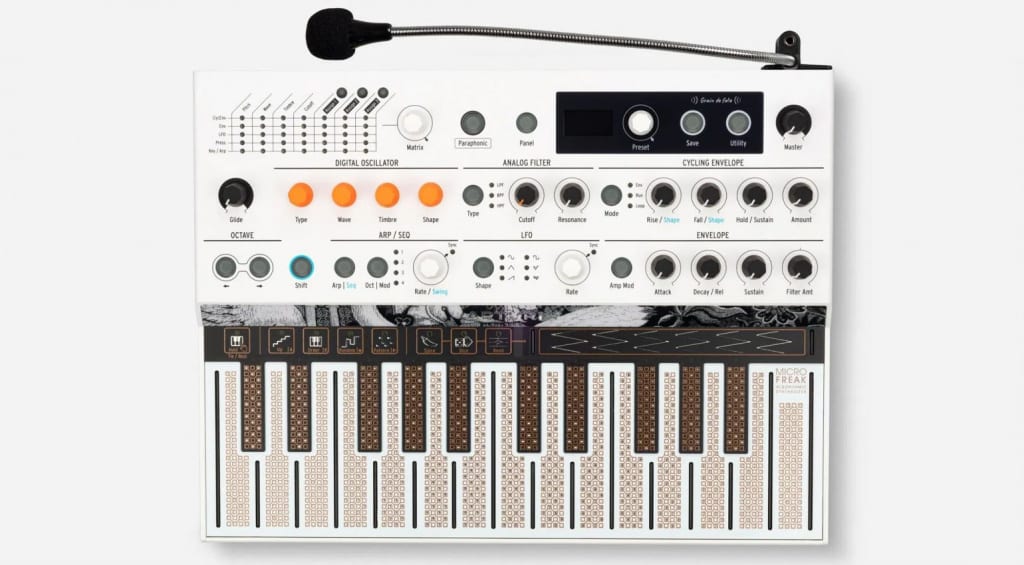
Although the MicroFreak is officially a monophonic synth – not the best for a vocoder – you can also run it as a four-note paraphonic instrument. This means that you can sing through chords and turn yourself into a choir. Note that the Micro’s bigger sibling, the truly polyphonic MiniFreak, doesn’t have a vocoder mode, so if you want to sing your life with a Freak, you’ll need the Micro.
Sadly, the Vocoder Edition of the MicroFreak is no longer available but don’t worry, the vocoder oscillator engine is standard no matter which edition of the instrument you get. You can even pick up a pack bundled with a microphone.



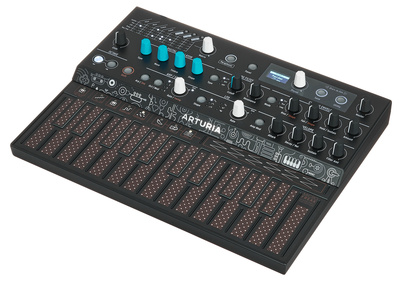

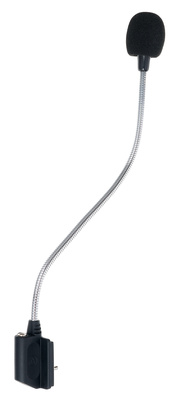
- Arturia MicroFreak product page
Best Hardware Vocoders: Waldorf STVC
One of Waldorf’s more unusual products is Streichfett, the company’s string machine in a box. Not to be outdone is STVC, which combines the Streichfett engine with a solo synth and vocoder and puts it all into a keyboard form factor. Interestingly enough for a string machine, which are usually about as analog as you can get (see the Behringer Vocoder VC340 above), it’s digital.
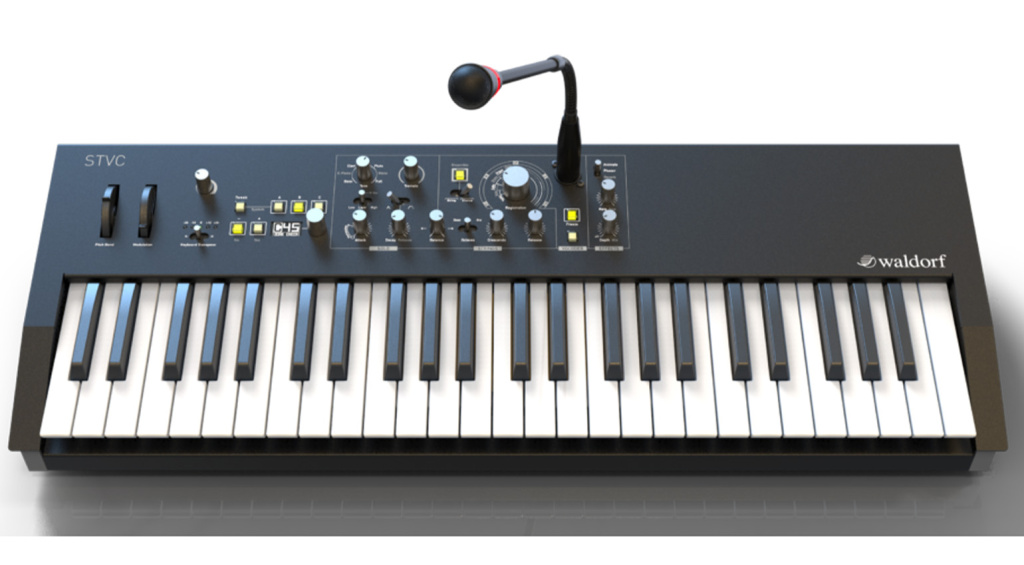
When in vocoder mode, STVC replaces the EQ in the string machine with a filter bank that models the human vocal tract. This acts as the carrier, which Waldorf promises is very intelligible. You can adjust formants and, since it’s digital, jitter for rough vocal effects. There’s also a Freeze button to capture short phrases that you can play on the keyboard, with control over playback speed and direction.
STVC is unique in the world of vocoders in that it’s analog in appearance but digital in character. Sort of the best of both vocal worlds – and one of the best hardware vocoders on the market today.

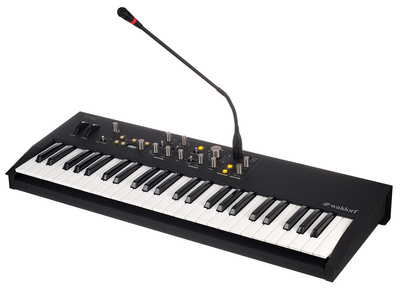
- Waldorf STVC product page
Best Hardware Vocoders: Korg MicroKorg 2
Korg’s MicroKorg 2 is the sequel to the first MicroKorg, an enduringly popular virtual analog synth that also happens to have a vocoder included. It makes a fine vocoder with an appealing and intelligible sound, but I’m going to recommend number two because it has even more features than the original.
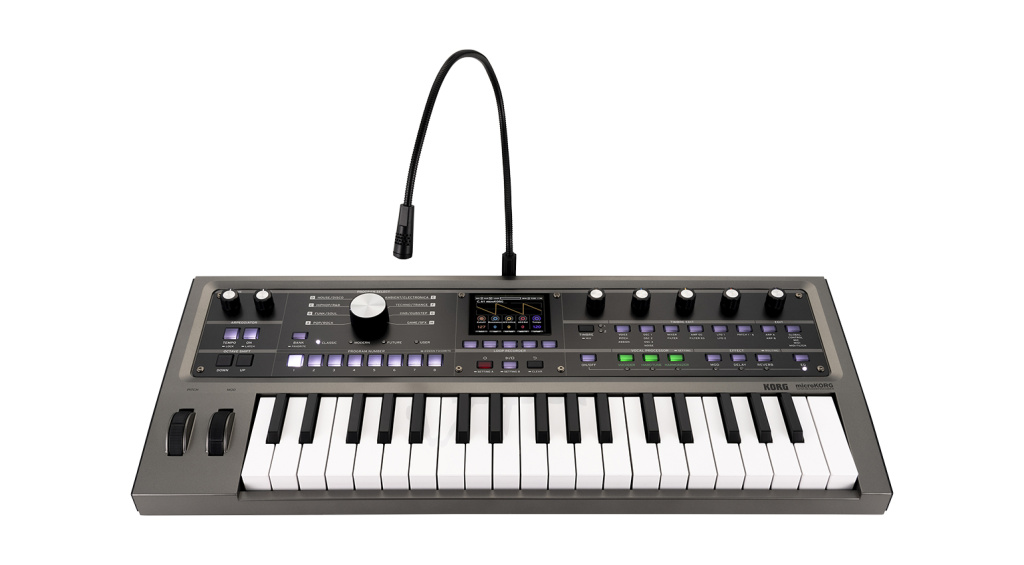
Along with the usual vocoder functions (yes, microphone is included in the package), the vocal processor in the new synth includes a number of additional parameters, including hard-tune pitch correction effects (like Autotune) and a harmonizer to pitch-shift and layer the source voice signal.
A continuation of a lovely vocal legacy from the company that released the first vocoder with a keyboard, 1978’s VC-10.

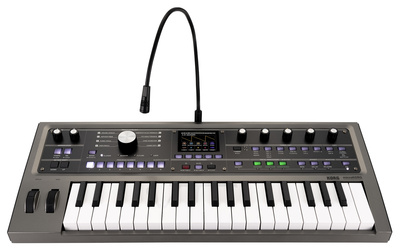

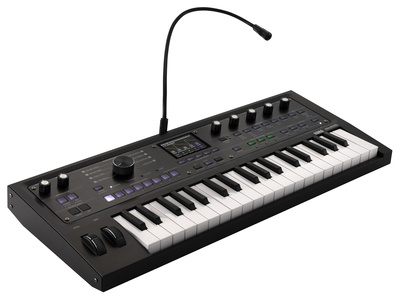

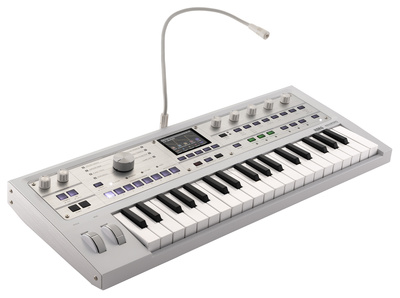
- Korg MicroKorg 2 product page
More Information
- All about vocoders
- All about synthesizers
*Note: This article contains advertising links that help us pay for this site. Don’t worry: the price for you will always be the same! If you buy something through these links, we will receive a small commission. Thank you for your support!
3 responses to “5 of the Best Hardware Vocoders: Sing the Body Electric With These Fun Voice Synths”

 4,5 / 5,0 |
4,5 / 5,0 | 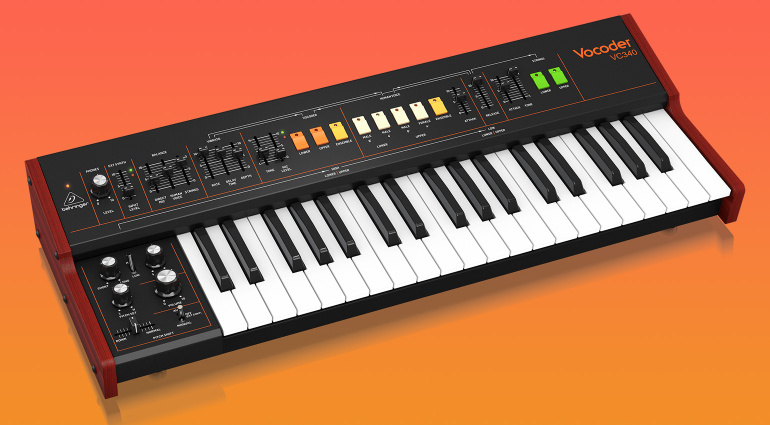


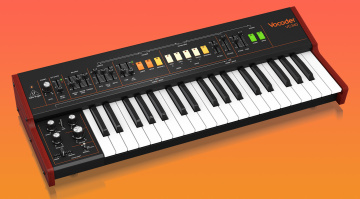


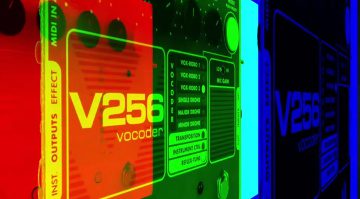
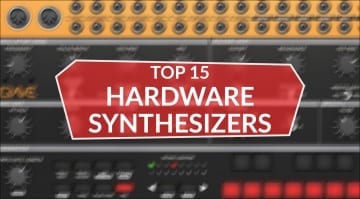
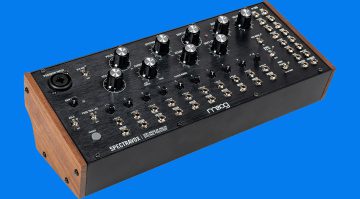

sorry but where is the EH 256 ?
The V256 is mentioned in this article: https://www.gearnews.com/what-is-a-vocoder-synth-studio/
The vocoder was invented as a military device to confuse hostile shipping on radio signals. I wonder if the people who invented it lived long enough to hear ELO’s Mr Blue Sky? 😁